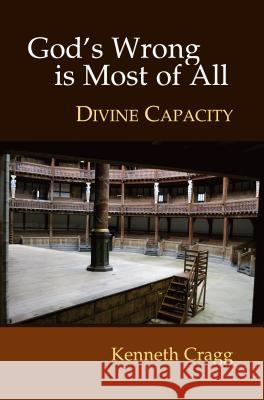God's Wrong is Most of All : Divine Capacity » książka
God's Wrong is Most of All : Divine Capacity
ISBN-13: 9781845191405 / Angielski / Miękka / 2006 / 201 str.
We do not do God, politicians may say, explaining that theirs is the art of the possible. Some theologians have been reluctant with that plea, whilst practising the art of the assured. But what might God doing God entail? God is a relational word involved in human mutuality. With God, doing is one with being . There is always a God and situation obtaining: God and the astronomers, God and the tsunami . Then quickly a God but situation emerges and the wrong with it. Shakespearean repartee ( God s wrong is most of all: if thou didst fear to break an oath with him, Richard III, Act IV, Scene 4), and from Macbeth and King Lear, may help us focus further the inherent discrepancies of approach. Moreover, by long oath-taking tradition we invoke God in verifying verity, putting perjury on the line. What then of this universal guarantor of truth who is, by the same token, for ever blameworthy? Hence the theme of divine capacity (a wiser term here than omnipotence ). For can there be a deep costliness, a wrong-bearing, on the part of God vis-a-vis the human scene, with its cry for compassion, pardon and redemption? Christian faith has always believed there is and traces it in this gift of habitable earth and more surely, in the Cross of Christ. That Cross, it has been said, is the avowal and acceptance of divine responsibility . If, in that human scene, love can turn suffering because of into suffering on behalf of, may it not be so with a love divine? Because of is plainly there in broken faith, angry blasphemy, base injustice, the sins of the world . Perhaps the other is known for real in the drama where all these, being suffered, were representatively turned to our salvation. That they were, this book explores."











